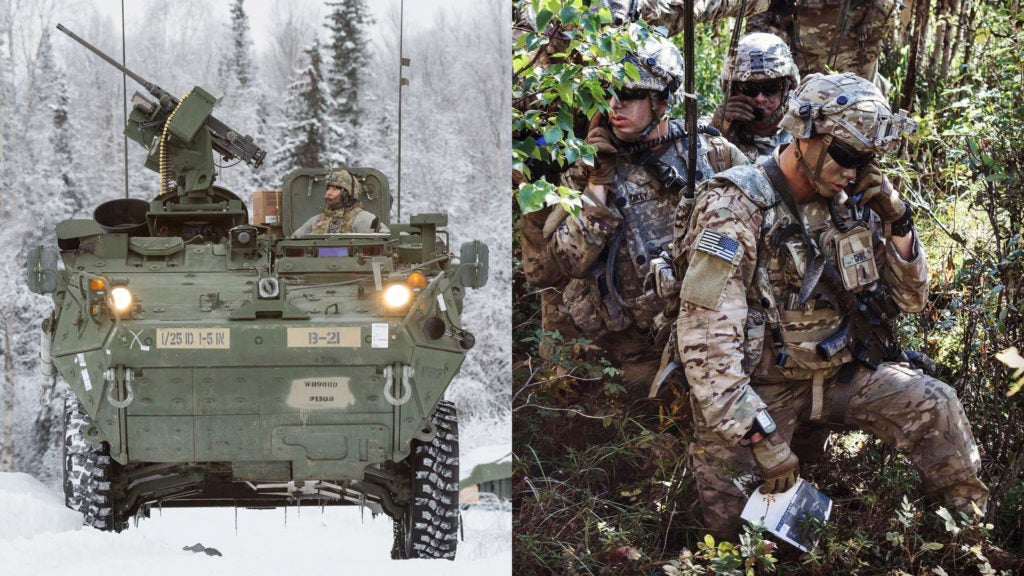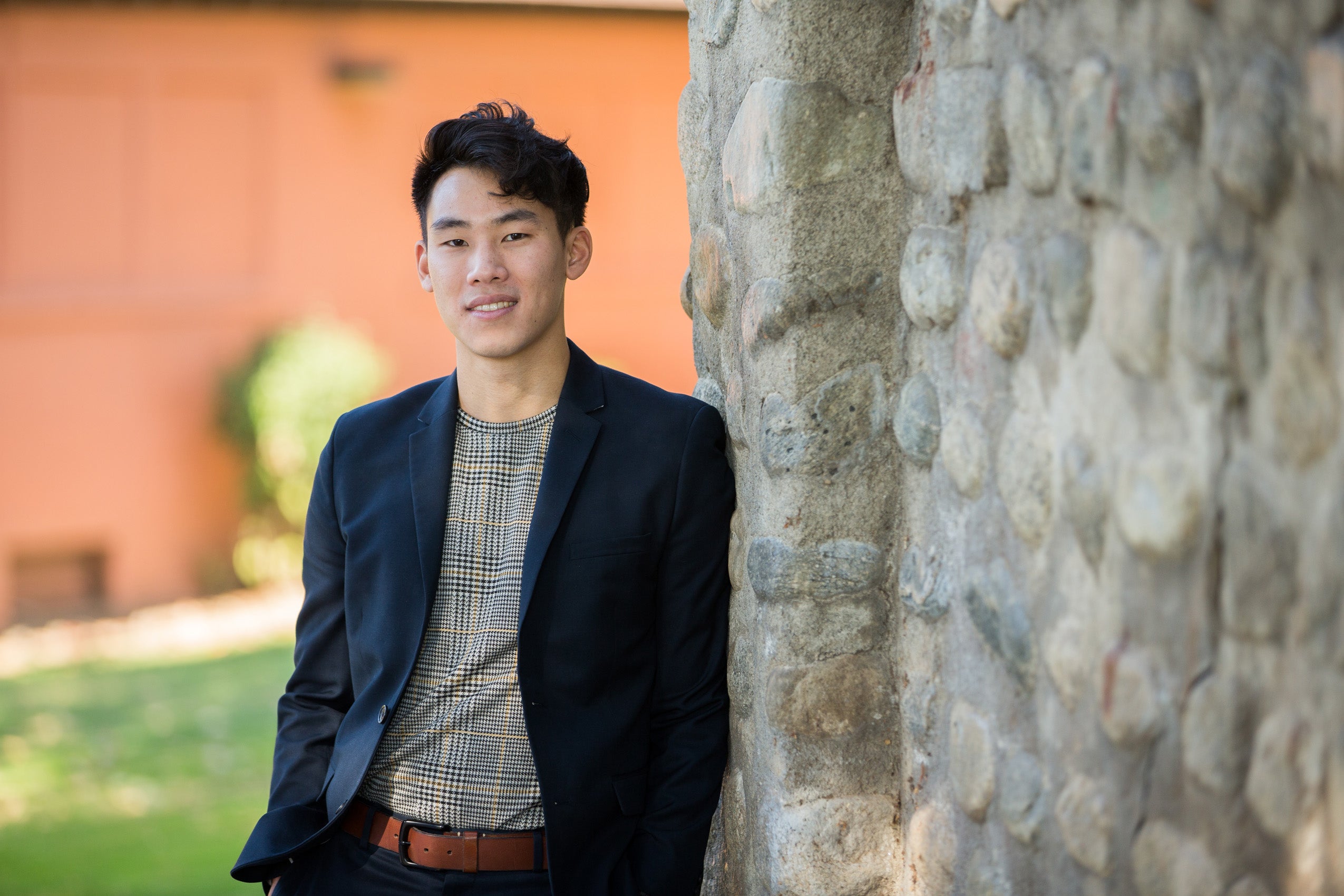Andrew H. Choi ’23 had spent most of his life in Southern California, including as an undergraduate at the University of Southern California, where he received a Distinguished Military Graduate award as one of the top ten percent of commissioning ROTC cadets nationwide. But Choi was eager for a serious challenge in his first Army posting, so he chose as radically different an environment as he could imagine: Fairbanks, Alaska.
“I’d hardly seen snow until I went up there, so it was a shock,” says Choi, who over his four years in the Army became an expert in arctic warfare, enduring temperatures that often dipped to 50 degrees below zero. “It was colder than I’d ever imagined it’d be.”
As an officer in one of only two Army units specializing in arctic warfare, Choi learned a variety of esoteric yet essential skills: basic survival in extreme conditions, cross-county skiing, cold-weather backpacking. His first assignment was as a rifle and headquarters platoon leader, where he ensured that his 44-soldier platoon was combat-ready and able to deploy on short notice. After being selected as one of the top platoon leaders in the battalion, Choi yearned for another challenge and in 2017 volunteered for U.S. Army Ranger school in Ft. Benning, Georgia, considered one of the toughest training courses in the military. After mastering advanced leadership skills for leading soldiers on particularly difficult missions, he returned to Fairbanks. He was promoted to the rank of captain and became the battalion’s chief of current operations in charge of managing day-to-day operations for 700 personnel.

Choi’s service coincided with a period during which the U.S. and North Korea were “engaging in hostile discussion, where there was almost an imminent threat of conflict,” he recalls. As one of the units closest to North Korea, he and his soldiers were prepared to deploy immediately. While deployment did not occur, “and obviously nobody wants that to happen,” he says, “the mentality is that you’ll stay ready for it.”
With a strong interest in entrepreneurship, Choi also participated in a project called Hacking 4 Defense, where he worked with technology developers and local Alaskan leaders to integrate wave-power technology to replace diesel-powered infrastructure for a coastal town. And on his off time, he relied on his new skills to explore remote parts of Alaska including the Kenai Peninsula.
“It’s pretty wild out there, and I was able to do some pretty cool stuff like kayaking among glaciers,” he says. “Backpacking on top of a glacier itself was pretty incredible.” Choi enjoyed participating in a Fairbanks tradition, a 15K run on the summer solstice when there is 24 hours of sunlight and spectators toss beer cans at the runners who themselves are chugging beers. And, on several occasions, he had the extraordinary experience of witnessing the spectacular Northern Lights. “It was a tremendous experience,” he says.
Since high school, Choi planned on a career in law. “Law seems like a field where you really can make a lot of impact, really champion people that don’t have a voice. I always felt called to that mission,” he says. However, he wanted to experience the military first, which is why he joined ROTC at USC.
“I always felt compelled to service,” says Choi. “I always knew I wanted to go to law school but felt I needed some time between starting that career to hone myself both professionally and personally. I felt that being an Army officer was going to afford me a lot of opportunities to hone my leadership skills at such a young age, which not a lot of careers coming straight out of college would provide.”
As an undergraduate Choi interned in the major crimes division at the Los Angeles District Attorney’s Office, and then, as a senior, volunteered with JusticeCorps, a division of AmeriCorps, where he helped low-income people without lawyers navigate the court system in Compton, California. “I was able to interface with clients on a direct basis and really help make a change, in a small way, in a lot of people’s lives,” he says. “That was inspiring.”
After being accepted to HLS, Choi chose to take his 1L year online rather than to defer because he was eager to get started. He is spending this semester in Los Angeles, where online classes “are going much better than I anticipated. I think that Harvard has taken really great pains to plan effectively to make the remote experience as good as it can possibly be.” The robustness of the mentorship opportunities offered by the faculty, Student Practice Organizations, and affinity groups—he belongs to the HLS Armed Forces Association, for one—are especially helpful, he says.
“I don’t think anything can substitute for having opportunities to directly network and interact with peers and professors but I think professors have made themselves extremely available to students,” says Choi. “In general, I haven’t felt like my law school so far has been lacking in any particular way.”
While undecided on his career path, Choi is interested in entrepreneurship and working with startups, and he is leading a team in both the Harvard Law Entrepreneurship Project and the Recording Artists Project. And after his experience in Alaska, he is also drawn to environmental law. “After being in the Arctic and seeing first-hand the effects of global warming, seeing how the permafrost is melting and seeing glaciers melt, it’s honestly pretty heartbreaking,” says Choi, whose HLS education is partially covered by the GI Bill. “I’d love to be part of some change in the status quo with regard to environmental regulations.”
And he hopes that his experience as a first-generation American—Choi was born in South Korea and moved to the U.S. at age six—and a first-generation law student “will inspire others with my background to aspire for HLS.”
